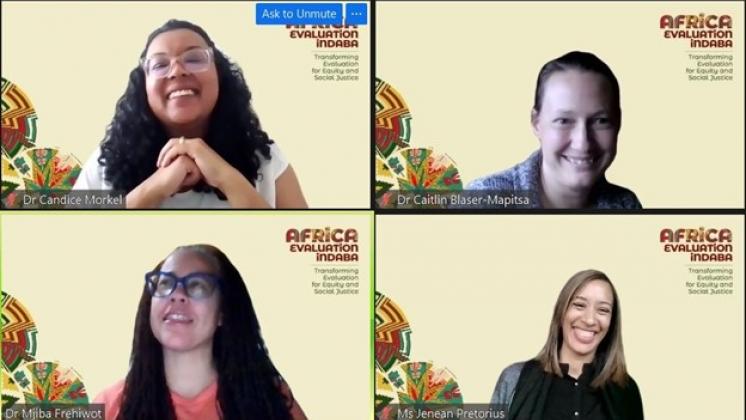CLEAR-AA’s Bi-annual Africa "Revaluation Indaba" Hosts 600 M&E Practitioners

The Centre for Learning on Evaluation and Results for Anglophone Africa, (CLEAR AA) – a GEI Implementing Partner - hosted its 2nd Bi-annual Africa Revaluation Indaba, November 22-24, 2022, under the theme, “Transforming Evaluation for Equity and Social Justice.” The 3-day Indaba had participation of over 600 monitoring and evaluation practitioners from Anglophone Africa, Francophone Africa as well as international participants from Iraq, Spain, Italy, and Singapore, to name a few.
This year’s Indaba honored the 10th year anniversary of the Bellagio conference, an event that brought together African leaders and was instrumental in laying the foundation for the African Evaluation paradigm and the broader indigenization agenda. The 2022 Indaba aimed to gather local and international speakers in making a contribution to the transformation discourse from a Global South perspective. It aimed to explore transformation in evaluation from its historical context in relation to the Global South and how it may relate to equity and social justice.
Some of the discussion highlights from the Indaba included the following:
- To appreciate the history and evolution of the discourse around M&E, scholars and practitioners need to appreciate what exists as well as the philosophers that have informed M&E; they must also be willing to critique the existing bodies of work to be able to develop future discourse and evaluation practice.
- “Made in Africa” evaluation should be considered as an umbrella term for approaches, frameworks, models, and evaluation methods that are guided by diverse philosophies, cultures, values, histories, and languages.
- The world is falling short of achieving gender equality by 2030. According to UN Women, on a global scale, one out of every 15 countries are "very far or far from target" in at least one-third of the United Nations’ Sustainable Development Goal (SDG) 5 indicators. As a result, bold commitment, increased investments, and strong policy actions are required to accelerate progress toward SDG 5.
- Enhancing the use of evidence requires developing trust among legislative staff, researchers, and parliamentarians. The validity of that evidence is the foundation of this trust.